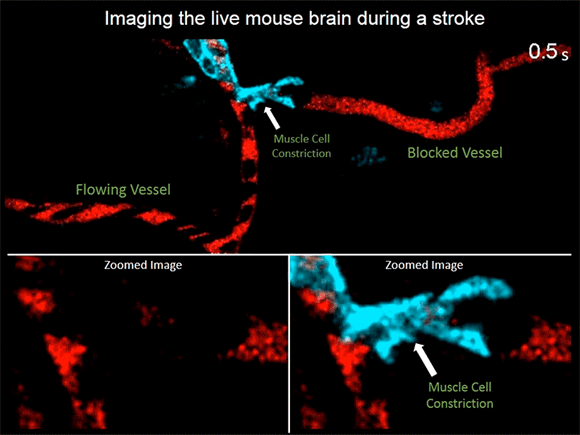
New research shows muscle contraction may contribute to stroke damage.
The precise regulation of cerebral blood flow is critical for normal brain function, and its disruption underlies many neuropathologies. Using optical imaging, researchers from Yale University found that capillary pericytes in mice and humans do not express smooth muscle actin and are morphologically and functionally distinct from adjacent precapillary smooth muscle cells (SMCs).
An investigation of blood flow network in the brain has revealed some surprising behavior of vessels during stroke, according to Yale researchers.
In the accompanying movie of a mouse brain taken by specialized microscope, researchers at the Yale School of Medicine found that smooth muscle (in cyan) actually constricts during a stroke instead of expanding, as would be expected to minimize damage during a stroke. This muscle contraction appears to contribute to permanent brain damage.
The findings provide a new target for potential drugs to improve stroke outcome, said Jaime Grutzendler, associate professor of neurology and of neurobiology, and senior author of the study, which appeared online June 25 in the journal Neuron.
Reference: “Regional Blood Flow in the Normal and Ischemic Brain Is Controlled by Arteriolar Smooth Muscle Cell Contractility and Not by Capillary Pericytes” by Robert A. Hill, Lei Tong, Peng Yuan, Sasidhar Murikinati, Shobhana Gupta and Jaime Grutzendler, 25 June 2015, Neuron.
DOI: 10.1016/j.neuron.2015.06.001



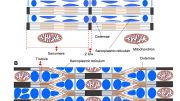
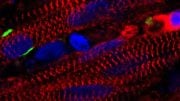
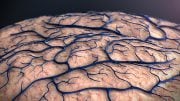

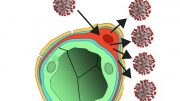
Be the first to comment on "Study Shows Muscle Contraction May Contribute to Stroke Damage"